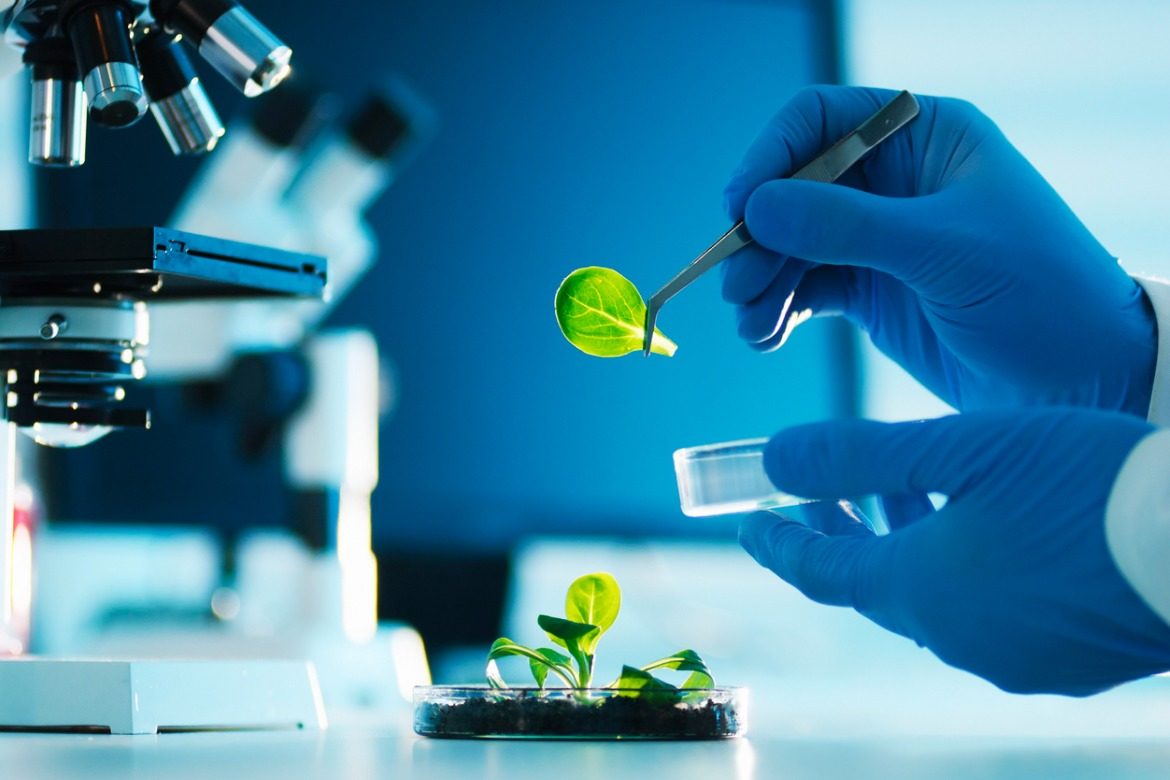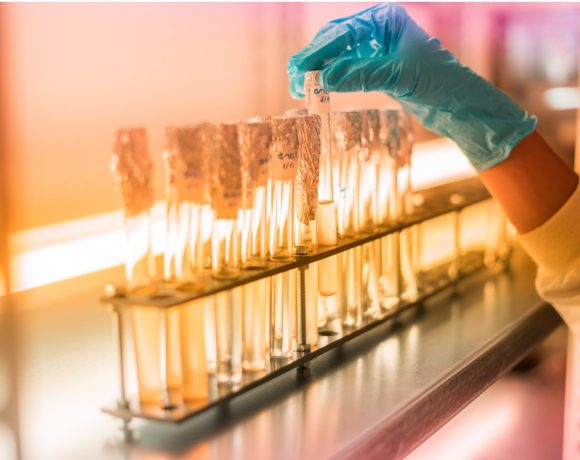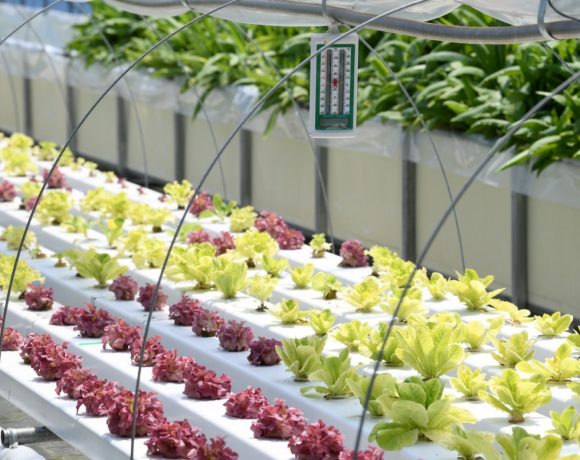- Israel is leading in cell and plant-based protein development. It hosts more than 100 alternative protein companies and 40 percent of these startups are considered ventures with breakthrough technology, shaping the future of food.
- Many Israeli companies are focussing on innovative raw materials and functional components. This includes, lowering the amount of sugar in juices, a sweetening sugar-substitute protein, natural food colours and more.
- Israeli food tech startups have realised that technology and patents are not enough. The need is for production facilities, regulatory approvals, an understanding and access to the market, experts in operation, supply chains, marketing and sales as well as professional and business networks.
Israel has become a leading hub for the intersection of technology and food. Investments into the booming food tech sector rose from USD 53 million in 2015 to a staggering USD 866 million in 2021.¹ From farm to fork, food tech covers a wide array of innovative solutions such as nutrition, cultured meat, novel ingredients, alternative proteins, packaging and food safety, processing systems, retail, restaurant tech, health and wellness.
The global agriculture and food industry is valued at over USD 8 trillion by the World Bank and makes up more than 10 percent of the global GDP. These numbers are driven by worldwide trends affecting the food industry such as the need to feed an additional 1.2 billion people by 2030, increased awareness of healthy eating as well as an aging population in developed countries. In a related move, the Food and Agriculture Organization of the UN (FAO) identified the livestock sector as one of the top two or three most significant contributors to the most serious environmental problems.
It comes as no surprise that food tech conquered the headlines in 2021 with a broad range of trailblazing innovations and Israeli startups are taking part in this revolution of what and how we eat, how it is packaged and how it gets to our plates. The country hosts seven food tech accelerators and incubators, which are often jointly funded by both public and private sector bodies.
The alternative protein boom
In the food tech arena, Israel is leading in cell and plant-based protein development. Globally, Israel has the second-highest number of startups in the cell-based meat area, as two out of five principal companies in this field have their headquarters in Israel. The country has the third-highest number of investments in alternative proteins in the world. In fact, Israel hosts more than 100 alternative protein companies and 40 percent of these startups are considered ventures with breakthrough technology, which could shape the future of protein and, thereby, the future of food.
The Good Food Institute (GFI) Israel recently published a report, which stated that the Israeli alternative protein sector in itself raised USD 623 million in 2021. This reflects a 450 percent increase from the USD 114 million the previous year. Regarding the total value of secured investments, Israel came second, only behind the US. Hence, Nir Goldstein, GFI Israel Managing Director, sees Israel’s role in this field as conceivably monumental: “With governmental support in this industry, Israel, which currently exports only five percent of the food it produces, could become a global supplier of raw materials and advanced production technologies for alternative proteins.”
It is likely that food tech will play a key role in the future. Many already know -established brands such as Redefine Meat and Remilk around the world, since these brands are leading the way in alt-meat and dairy, respectively. The alt-protein industry includes cell agriculture, which combines cultured meat and dairy components with animal and plant-based protein products and practices innovative plant-based protein production methods, such as inventive technology that mimics the texture and flavour of meat.
In ten years, the global dairy, poultry and meat alternatives market is expected to be worth about USD 140 billion. This trend will also be evident in Israel since 15 percent of the meat and poultry market is expected to be based on alternative protein. The world’s first lab-grown meat factory opened in November 2021, and belongs to Future Meat Technologies, an Israeli cell-grown meat developer. The startup broke all records with the biggest single investment in a cultured meat company to date, with a series B investment of USD 347 million.
Another such success story is the startup SavorEat, which develops plant-based meat using a combination of chef robots, proprietary 3D printing and non-GMO ingredients. It aims to recreate the experience, taste and texture of real meat and its 3D printing technology is ideal for precise, fast and consistent results, no matter the setting.
But, beyond the lab-grown meat trend, a multitude of companies are paving the way for more products such as Imagindairy produce – animal-free dairy. ZeroEgg develops plant-based eggs that taste like the real thing. Ukko designs specific proteins to end food allergies and sensitivities. Others such as Alfred’s Food Tech are working to solve the challenge of texturisation within the alternative protein sector, while Plantish cultivates plant-based fish. More opportunities for plant-based, cultivated and fermentation-derived proteins surface daily. The resilience of the market opportunity in the midst of various highly volatile years seems to be demonstrated as capital does not seem to stop flowing into the sector at a high speed.
Something has got to be cooking
Food sector veteran, Gil Horsky, is the senior director of ventures for SnackFutures at Mondelez International and has more than a decade of experience. He observes that an increasing number of young people in Israel want to move into the sphere of food tech due to the potential for large-scale impact: “The younger generation of entrepreneurs is really seeing interest in this industry and its huge impact on human nutrition and planetary health. One of the common things you see is that the most interesting companies are actually teams that have not come from the food industry. A lot of the folks that are working in cell-based protein are actually professors and scientists coming from stem cells; we see folks coming from material science, biotech, pharma, big data, and AI bringing their know-how into the field,”² he says.
Horsky sees a lot of potential for Israel to become a leader in many more fields in the food tech space. Firstly, he identifies the area of food as medicine and the intersection between functional foods, supplements and over-the-counter drugs. Secondly, Horsky predicts a great potential in digitising the value chain, especially in the agri-food industry due to Israel’s strong capabilities surrounding big data, AI and the Internet of Things. An increasing number of companies are starting to work towards digitising the whole value chain of farming, including automatiation of the farm, irrigation, manufacturing, distribution, selling in-store and optimising pricing.
A further noteworthy trend in the field, which has already been adopted by many Israeli companies, is the focus on innovative raw materials and functional components. This includes, for example, lowering the amount of sugar in juices, a sweetening sugar-substitute protein, natural food colours and more.
Israeli food tech startups are also realising that technology and patents are not enough. The need is for production facilities, regulatory approvals, an understanding and access to the market, experts in operation, supply chains, marketing and sales as well as professional and business networks. Nevertheless, in the field of alternative protein, Israel holds a clear advantage for startups as an accessible first market for commercialising technology. It allows a comparably low-cost market entry and a high rate of consumers open to new experiences. All this underscores the key position Israel will hold in the further development and maturation of the industrial food tech sector.
¹ IVC-MEITAR Israeli Tech Review 2021
²Hennessey, Z. (2022, March 29), “What is ‘food-tech 2.0’ and how can Israel get there?”, The Jerusalem Post. https://www.jpost.com/business-and-innovation/tech-and-start-ups/article-702534






NO COMMENT